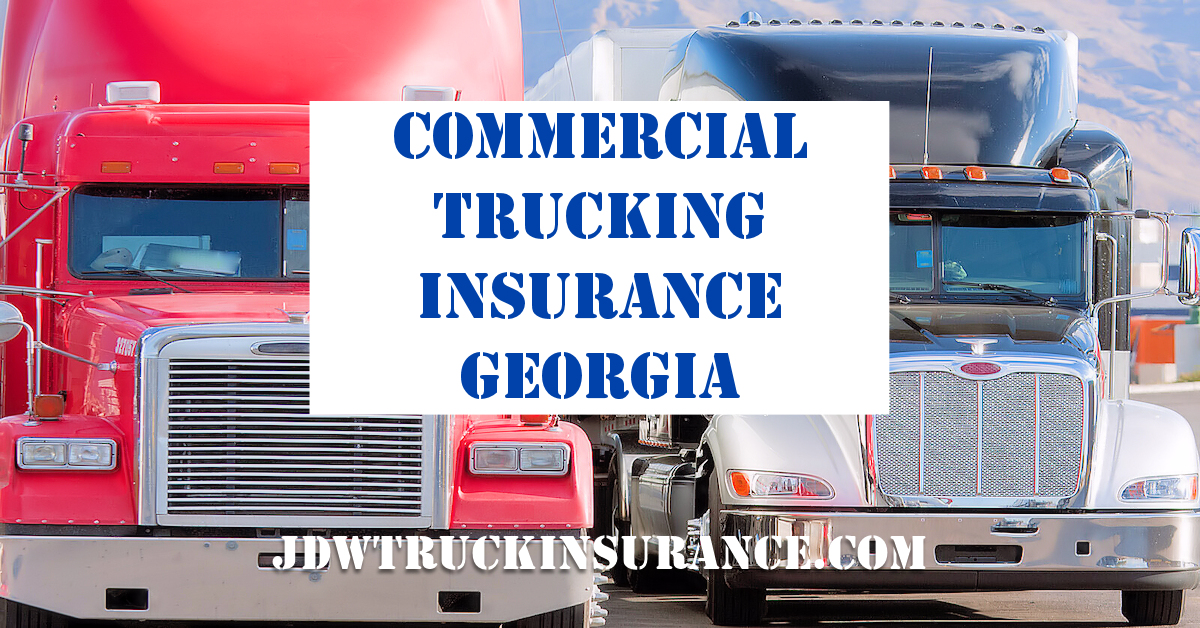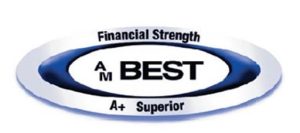Owner Operator Truck Truck Insurance Rock Chapel, Georgia
New Authority Truck Insurance Georgia
Commercial truck insurance Georgia. Owner Operator Truck Truck Insurance Rock Chapel, Georgia. Affordable commercial truck insurance GA. Top rated commercial truck insurance companies Georgia.
Owner Operator Truck Truck Insurance Rock Chapel, Georgia
If you are searching for New Authority Truck Insurance Georgia. JDW Truckers Insurance specializes in New Authority Truck Insurance in Georgia. We help you get affordable commercial insurance rates for your new authority.
We offer quote from only the top rated commercial truck insurance companies who offer the best rates for your new authority in Georgia.
JDW will help get the the correct commercial truck insurance in place which will fit your budget and allow you to haul the cargo you want and need to in order to be successful.
We are here to answer your questions with fast and friendly service.
Owner Operator Truck Truck Insurance Rock Chapel, Georgia
We offer affordable new authority trucking insurance for the entire state of Georgia.
We Customize your New Authority Truck Insurance to Help you Save Money!
Our agents at JDW Truckers Insurance know trucking insurance in Georgia. We will explain the different options and commercial truck insurance requirements in Georgia.
We help you get the right coverages in place so you are no over paying for coverages you may not need. We also help you make sure you have the coverages you need in place. And we do this at affordable commercial truck insurance rates.
New Authority Truck Insurance Requirements and Options
General Liability Insurance for Truckers
- General liability insurance for truckers should not be confused with primary liability for truckers.
- Similar to primary liability. General liability offers coverages to pay for physical damage to other and/or bodily injury to others. BUT there is a difference between the two.
- For example, if you are loading or unloading and you cause injury to someone or their property this is when the general liability policy would respond.
- The actions of a driver while representing the insured and on the premises of others, such as loading docks and truck stops
- General Liability is normally offered $1,000,00 per occurrence and $2,000,00 aggregate. What does this mean?
- It the insurance company will pay up to $1,000,000 for any one claim and no more than $2,000,000 per year for the total of all claims.
- General liability can be required by shippers and other companies such as the UIIA and flatbed operations.
- If there is any chance you might be involved in loading or unloading. General Liability is relatively inexpensive and is an advised coverage.
Auto Liability Insurance
- Your Auto Liability or primary liability will be the major cost for your trucking insurance policy. Although the FMCAS can only require $750,000 in most cases shippers will require $1,000,000 in primary liability insurance coverage before they will allow you to pick up loads.
- Primary liability insurance covers damages to third parties for bodily injury and physical damage to others property in the event of an accident.
Medical Pay
- In most cases this is a low cost add on to your primary liability insurance to cover medical expenses.
PIP – Personal Injury Protection
- Some states require this coverage and, in many cases, can reduce the need for Medical Pay.
- Personal injury protection (PIP), also known as no-fault insurance, covers medical expenses and lost wages of you and your passengers if you’re injured in an accident. PIP coverage protects you regardless of who is at fault.
Uninsured Motorist
- If you’re hit by a driver with no insurance…
- Uninsured motorist bodily injury (UMBI) may pay medical bills for both you and your passengers.
- Uninsured motorist property damage (UMPD) may pay for damage to your vehicle.
Underinsured Motorist
- If you’re hit by a driver with not enough insurance…
- Underinsured motorist bodily injury (UIMBI) may pay medical bills for both you and your passengers
- Underinsured motorist property damage (UIMPD) may pay for damage to your vehicle
Motor Truck Cargo
- MTC or Cargo insurance provides insurance on the freight or commodity hauled by a for-hire trucker. It covers your liability for cargo that is lost or damaged due to causes like fire, collision or striking of a load.
- If your load is accidentally dumped on a roadway or waterway, some cargo forms offer Removal Expenses coverage pays for removing debris or extracting pollutants caused by the debris. And can also pay for costs related to preventing further loss to damaged cargo through Sue and Labor Coverage and legal expenses in the defense or settlement of claims. Another option is Earned Freight Coverage to cover freight charges the customer loses because of an undelivered load.
- Cargo insurance deductibles can be set at $1,000, $2,500, $5,00 or even higher if you are self-insured.
- Cargo coverage limits are normally set at $100,00 but some shippers may have higher requirements depending on the cargo you are hauling.
- Cargo policies can have exclusions stating what cargo it will or will not cover.
Trucking Physical Damage Insurance (PD)
- Physical damage insurance coverages are designed to pay for losses to your equipment and damages to others equipment. (Others equipment must be listed on your policy).
- If you own or lease equipment. You may be required to have PD by bank or leasing company to carry a set amount of physical damage insurance and name them as a Loss Payee.
- PD can also cover damage to others equipment you are in possession of if the coverage is listed on your policy. An example would be non-owned trailer insurance coverage.
- Deductibles for physical damage range from $1,000 to $5,000.
- Required deductibles. If you have a loan on your equipment or it is leased. They bank or leasing company may have a minimum deductible you can have on your physical damage policy.
Owner Operator Truck Truck Insurance Rock Chapel, Georgia
Chat with JDW Truckers Insurance. We are fast and friendly. Great customer service. Free 24/7 COI.
We offer affordable new authority truck insurance in:
AL – AR – FL – GA – IN – MO – MS – NC – OH – PA – SC – TN – TX – VA
We offer new authority truck insurance quotes for:
- Dry van
- Flatbed
- UIIA
- Amazon
- Reefer and more
Owner Operator Truck Truck Insurance Rock Chapel, Georgia
Owner Operator Truck Truck Insurance Rock Chapel, Georgia
Lithonia ( lih-THOH-nee-ə, AAVE: ly-) is a city in eastern DeKalb County, Georgia, United States. The city’s population was 2,662 at the 2020 census. Lithonia is in the Atlanta metropolitan area.
“Lithonia” means “city/town of stone”. Lithonia is in the heart of the Georgian granite-quarrying and viewing region, hence the name of the town, from the Greek lithos, for “stone”. The huge nearby Stone Mountain is composed of granite, while the Lithonia gneiss is a form of metamorphic rock. The Stone Mountain granite is younger than, and has intruded the Lithonia gneiss. The area has a history of rock quarries. The mines were served by the Georgia Railroad and Atlanta, Stone Mountain & Lithonia Railway. Some of the rock quarries have been converted to parkland, and the rail lines to rail-trail.
Lithonia is one of the gateways to the Arabia Mountain National Heritage Area, which is largely contained inside Stonecrest, Georgia.
Lithonia is located in southeastern DeKalb County at 33°42′46″N 84°6′21″W / 33.71278°N 84.10583°W (33.712658, -84.105897). Interstate 20 passes just south of the community, with access from Exits 74 and 75. Lithonia is 18 miles (29 km) east of the center of Atlanta. Some areas in extreme southern Gwinnett County use a Lithonia postal address near the county line.
According to the United States Census Bureau, the city has a total area of 0.89 square miles (2.3 km), all land.
In 1805, Lithonia began as a small crossroads settlement of farmers. The town grew with the coming of the Atlanta Augusta Railroad in 1845, which allowed the granite quarrying industry in the area to flourish.
Lithonia is the birthplace of the Lithonia Lighting company, one of North America’s largest manufacturers of commercial, institutional, industrial and residential light fixtures, which was founded in the city in 1946 but moved to nearby Conyers in the 1950s.
New Birth Missionary Baptist Church, a megachurch which is known for many high-profile funerals, is located in Stonecrest, GA, near Lithonia.
The Lithonia Historic District consists of a commercial core surrounded by residential areas, with a period of significance spanning from 1845 to 1964. Stylistic influences in the district include Second Empire, Queen Anne, Folk Victorian, Neoclassical Revival, English Vernacular Revival, Craftsman, and Colonial Revival. The district is bisected by the Georgia/CSX Railroad, which runs perpendicular to the historic commercial core’s primary thoroughfare, Main Street. The commercial area extends south from the intersection of Main Street and the railroad, covering a two-block area. The commercial buildings are primarily brick and local granite masonry, with little decorative detailing. Commercial styles include single retail, multiple retail, and retail and office types. Within the historic district, there is some non-historic infill construction such as the 1968 Lithonia Plaza shopping center.
The residential areas consist architecture typical of late 19th- to mid 20th-century types and styles. Residential neighborhoods also feature locally quarried granite and gneiss. House types and styles include the central hall Georgian cottage, gabled-wing cottage, Queen Anne cottage, New South cottage, pyramid cottage, bungalow, Ranch house, I-House and Queen Anne house.
Landmark properties include the Masonic Lodge (1916), The Lithonia Women’s Club (1928), the Lithonia First United Methodist Church (1910), Antioch Baptist Church (1911), Lithonia Presbyterian Church, The Union Missionary Church (1911), the Bruce Street equalization school (c.1953), and The Seminary (1895). Contributing sites in the district include two cemeteries, two parks, the former Georgia Railroad Quarry, and the ruins of the Bruce Street School for African-Americans (1938).
The district is significant under National Register criterion A (association with historic events) and C (architecture), with areas of significance in Architecture, Black and European Ethnic Heritage, Community Planning and Development, Industry, and Transportation.
As of the 2020 United States census, there were 2,662 people, 938 households, and 524 families residing in the city.
Lithonia’s city population was 1,924 at the 2010 census, over 799 households, and 560 families residing in the city. The population density was about 1,924 inhabitants per square mile (1,068.9/km). There were 892 housing units at an average density of 1,129.9 per square mile (436.3/km2). The racial makeup of the city was 84.3% Black, 8.5% White, 0.05% Native American, 0.2% Asian, and 1.42% from other races. Hispanic or Latino of any race were 5.8% of the population.
There were 799 households, out of which 40.8% had children under the age of 18 living with them, 33.3% were married couples living together, 22.6% had a female householder with no husband present, and 29.9% were non-families. 15.7% of all households were made up of individuals, and 4.8% had someone living alone who was 65 years of age or older. The average household size was 2.70 and the average family size was 3.25.
In the city, the population was spread out, with 34.4% under the age of 18, 9.0% from 18 to 24, 27.4% from 25 to 44, 17.4% from 45 to 64, and 11.8% who were 65 years of age or older. The median age was 30 years. For every 100 females, there were 76.7 males. For every 100 females age 18 and over there were 63.1 males.
The median income for a household in the city was $53,397, and the median income for a family was $54,792. Males had a median income of $29,500 versus $24,788 for females. The per capita income for the city was $10,605. About 12.6% of families and 18.9% of the population were below the poverty line, including 31.8% of those under the age of 18 and 25.7% of those 65 and older.
The unincorporated communities located outside the city limits make up almost 75% of the population estimated at over 15,000 inhabitants. Neighborhoods are broken into two ZIP codes: 30058 which includes the City proper, and communities directly outside the city limit, and 30038 located south of Interstate 20 which includes some of the most affluent neighborhoods in DeKalb County.
Lithonia is near to a super-regional shopping center, the Mall at Stonecrest (also known as Stonecrest Mall), and serves as the northernmost point on the Arabia Mountain Path. Much of the mall’s available property has yet to be developed.
The three main health facilities in Lithonia are:
DeKalb County Public Schools operates public schools. Lithonia Middle School is the only school located in the city limits of Lithonia.
The schools that serve the city limits of Lithonia are: Stoneview Elementary School in Stonecrest, Lithonia Middle School, and Lithonia High School in Stonecrest (formerly Redan CDP).
Elementary schools in the wider surrounding area:
Middle schools in the surrounding area:
High schools in the surrounding area:
DeKalb County Public Library operates the Lithonia-Davidson Library the main library source in Lithonia, which was once privately owned until being incorporated into the DeKalb County Public Library system in 1947.
Other libraries in the Lithonia area include:
Lithonia’s main post office is located on Stone Mountain Street in the heart of Lithonia. Many drop boxes and postal services storefronts are located throughout the communities of Lithonia.
Redan post office located directly outside the city limits of Lithonia provides an alternative to postal drop off and pickup service.
United Parcel Service (UPS) and FedEx also provide alternative postal service to Lithonia.
MARTA (Metropolitan Atlanta Rapid Transit Authority) provides connecting bus service to and from Lithonia, and GRTA Xpress (Georgia Rapid Transit Authority) provides commuter bus service to downtown Atlanta from a community park and ride lot.
Choose the Right Agent
When choosing the agent, you want to represent you to the insurance companies. Pick an agent that is trained in commercial truck insurance. And make sure the agent you choose to work with is there when you need them. Our agents are trained in commercial truck insurance and are easy to contact. Email, phone call or text message. We respond quickly to our clients.
Certificate of Insurance
Not being able to get a quick COI could cost you money by not being able to pick up a load for the lack of a COI. Our clients at JDW Truckers Insurance are given access to our COI Portal where they can issue a COI 24/7 free of charge.
Insurance Companies Customer Service
Not only should you choose a responsive agent but you will want to be insured by a commercial insurance company who also responds to your requests and are there to help you in case of a claim or endorsements
AM Best Ratings
The AM Best Rating of the commercial truck insurance company you choose to insure your operation should not be over looked. You want to be insured by a trucking insurance company that has the financial stability to pay claims. Many shippers will require an AM Best Rating of A – minus of better. At JDW all of network of commercial truck insurance companies have an AM Best Rating of A – or better.



